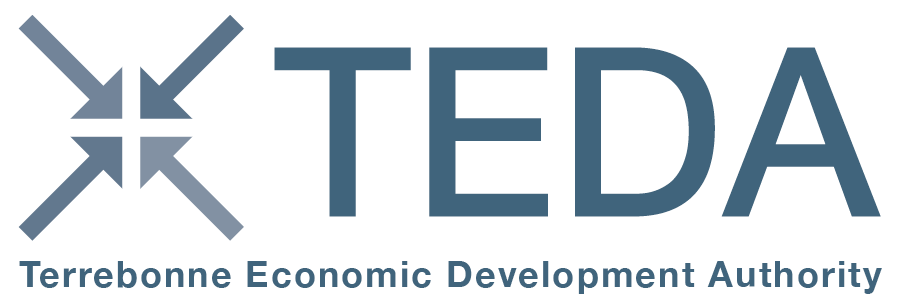New report by well-known Louisiana economist predicts slow recovery after four-year oil bust.
A new forecast from a well-known Louisiana economist presents one of the most optimistic forecasts for Houma-Thibodaux’s economy since an offshore oil bust began four years ago.
Loren Scott’s annual economic forecast, which he delivered Wednesday to members of the South Louisiana Economic Council and other local business officials, does not predict a return to boom times anytime soon. Instead, it describes the area’s oil-based economy as beginning a slow climb from the bottom of the latest downfall.
“After much bloodletting, the corner appears to have been turned,” the report says. “Fabricators and shipbuilders are making a reasonably successful shift to non-extraction-related-customers. An oil price of $80 a barrel by 2020 is expected to start a serious revival in the Gulf by 2020.”
Scott projects the metro area, comprised of Terrebonne and Lafourche parishes, will gain 700 jobs, 0.8 percent, next year. It will add another 2,100 jobs, 2.4 percent, in 2020, driven largely by gains in oil and gas.
A rebound has already begun, the report suggests, defying his prediction last year that the area would lose another 1,800 jobs in 2018. Instead, he now predicts the local economy will end the year with a net gain of 200 jobs.
“The numbers obviously do not show great growth,” the report says, “but at least they are up.”
‘LONG ROAD BACK’
Houma has a “long road back” to anything akin to the vibrant economy it enjoyed before a global crude glut caused oil prices to plummet and local jobs to vanish, the report suggests.
The area has lost roughly 16,000 jobs -- about one of every six -- since mid-2014 as low crude prices sparked layoffs and work slowdowns throughout the oil industry.
“This is more than 2 1/2 times worse than what U.S. employment declined during the Great Recession over 2008-09,” Scott says in the report.
Here, according to the report, is how some local companies have dealt with the downturn:
Edison Chouest, a Galliano-based company that builds and operates oilfield supply boats, cut the number of workers at its LaShip yard in Houma in half to 500. One hundred of the company’s 250 boats are are docked, and its mariners are working about half the time they did before the collapse. Employment at Chouest’s North American Shipyard in Larose has declined from about 500 to 200. Its North American maintenance facility at Port Fourchon remains open with about 300 workers.
Chett Morrison, a Houma-based fabrication company, cut its workforce from 515 to 320.
Baker-Hughes closed its 50-person oil services office in Houma.
Hercules Offshore, which operated a fleet of oilfield service boats, declared bankruptcy, closed its Houma yard and laid off 50 people there.
National Oilwell Varco, which builds oilfield equipment, closed its Houma facility at a cost of 80 jobs.
CCHI Aviation closed its Galliano base, laying off 74 pilots, mechanics and support staff.
Offshore Specialty Fabricators began layoffs in May 2016 that cost 67 jobs.
“The bloodbath was obviously not confined to the direct oil and exploration companies but also to tangentially connected companies,” the report says.
KEY TO A COMEBACK
Scott cites several developments as evidence the local economy has hit bottom and is on the path toward slow improvement. The area has posted several months of year-to-year job gains, truck traffic to and from the Gulf oilfield hub of Port Fourchon is picking up, and service companies along the Louisiana coast are planning for growth through 2020. Gulf oil lease sales, though far below historic highs, are on the rise. And many companies are beginning to diversify the kinds of work they do to become less reliant on the oil industry’s boom-or-bust cycles.
But the key to any comeback is the same thing it has been for decades: the price of crude oil.
It’s notoriously difficult to predict long-term crude prices because so many variables affect them -- political and regulatory decisions, production activity by major suppliers like the U.S. and OPEC, economic conditions or unrest in far-flung parts of the world, and global supply and demand. As a result, analysts’ and predictions vary significantly.
Scott predicts oil will rise from an average $65 a barrel this year to $80 a barrel by 2020. Whether that happens will have major implications not just for Houma-Thibodaux but for all of Louisiana.
“Because Louisiana is the country’s second-largest producer of crude oil, if offshore crude is counted in the number, movements in oil prices can often dramatically impact the state, as Louisiana has learned with a vengeance since late 2014,” Scott says in the report. “The huge decline in oil prices from late 2014 through much of 2017 hammered Louisiana’s oil patch so hard that it sent the state into a 28-month recession and a loss of 23,300 jobs (-1.2 percent). Louisiana desperately needs oil prices to both rise and stay high for an extended period for a drilling recovery in the Gulf of Mexico and a revival of the state’s oil-centered metropolitan areas.”
-- Executive Editor Keith Magill can be reached at 857-2201 or keith.magill@houmatoday.com.

